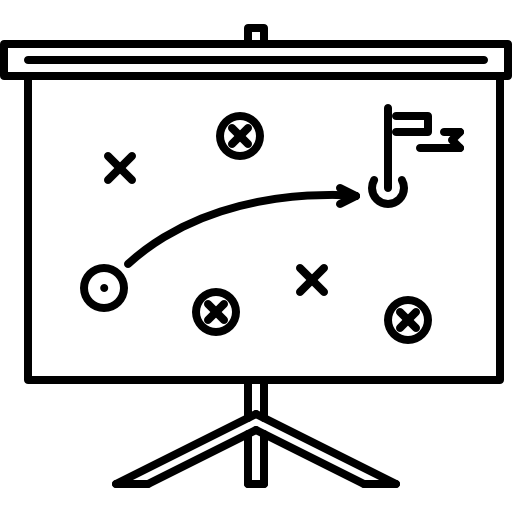Surgery Billing – A Guide to Medicare’s Global Surgery Package
By: Robbin Grayson
When it comes to medical billing for surgery, there are various claim submission requirements within Medicare. The largest and most broadly applied is called The Global Surgery Package, or more simply, Global Surgery.
Global surgery refers to all the necessary services performed by a surgeon before, during, and after a surgical procedure. It also includes any necessary services performed by members of that surgeon’s team (provided they practice within the same specialty).
Under the Global Surgery rule, this team of clinicians is viewed (for billing purposes) as a single physician, with all patient encounters, check-ups, treatments, and operations related to the surgery, effectively viewed as a part of the original procedure. Put more simply, the global surgery rule takes all the work surrounding and related to a surgical procedure, and groups it into a single claim.
Understanding the specifics of the Global Surgery process is pivotal to ensuring maximum fair reimbursement for medical services rendered. The following article summarizes Medicare’s Global Surgery rules, including the three classifications of global, as well as various exceptions to the general procedures. The first section gives a broad overview of the requirements, while the remaining sections dive more thoroughly into the specifics.
Author’s Note: I’ve written this article in bullet point form, as I believe it makes the information easier to understand and digest. It also allows readers, who may be familiar with some areas of the Global Surgery rule, to easily find and learn about other areas of the rule they may be unfamiliar with.
A General Overview of the Global Surgery Rules:
These Key Points are Discussed in more Detail in the Following Sections
Services Included in the Global Surgery Billing Package
- Pre-operative (Before Surgery)
- Pre-operative visits after the decision is made to operate
- For major procedures, this includes pre-operative visits the day before the day of surgery. For minor procedures, this includes pre-operative visits the day of surgery.
- Intra-operative (During Surgery)
- Intra-operative services that are a normal and necessary part of the surgical procedure
- Post-Operative (After Surgery)
- All additional medical or surgical services required of the surgeon during the post-operative period of the surgery because of complications, provided they do not require additional trips to the operating room
- Follow-up visits during the post-operative period of the surgery that are related to recovery from the surgery
- Post-surgical pain management by the surgeon
- Other Included Services
- Supplies, except for those identified as exclusions
- Miscellaneous services, such as dressing changes, local incision care, removal of operative pack, removal of cutaneous sutures and staples, lines, wires, tubes, drains, casts, and splints; insertion, irrigation, and removal of urinary catheters, routine peripheral intravenous lines, nasogastric and rectal tubes; and changes and removal of tracheostomy tubes
Services NOT Included in the Global Surgery Billing Package
- For major surgeries, the initial consultation or evaluation of the problem by the surgeon to determine the need for major surgery. This is billed separately using the modifier “-57” (Decision for Surgery).
- The initial evaluation for minor surgical procedures and endoscopies is always included in the global surgery package
- Services of other physicians related to the surgery, except where the surgeon and the other physician(s) agree on the transfer of care
- This agreement may be in the form of a letter or an annotation in the discharge summary, hospital record, or ASC record.
- Visits unrelated to the diagnosis for which the surgical procedure is performed, unless the visits occur due to complications of the surgery
- Treatment for the underlying condition or an added course of treatment, which is not part of normal recovery from surgery
- Usually seen in cases where surgery is only part of a more extensive treatment plan or where surgery is unsuccessful (or only partially successful) in treating the underlying condition
- Diagnostic tests and procedures, including diagnostic radiological procedures
- Clearly distinct surgical procedures that occur during the post-operative period, which are not re-operations or treatment for complications
- A new post-operative period begins with the subsequent procedure. This includes procedures done in two or more parts for which the decision to stage the procedure is made prospectively or at the time of the first procedure.
- Treatment for post-operative complications, requiring a return trip to the Operating Room (OR).
- An OR, for this purpose, is defined as a place of service specifically equipped and staffed for the sole purpose of performing procedures. The term includes a cardiac catheterization suite, a laser suite, and an endoscopy suite.
- It does not include a patient’s room, a minor treatment room, a recovery room, or an intensive care unit (unless the patient’s condition was so critical there would be insufficient time for transportation to an OR).
- A second, more extensive procedure, if required because the initial, less extensive procedure failed
- The second procedure is then billed separately
- Immunosuppressive therapy for organ transplants
- Critical care services (CPT codes 99291 and 99292) unrelated to the surgery
- where a seriously injured or burned patient is critically ill and requires constant attendance of the physician
Types of Global Surgery: Three Classifications Based on Post-Operative Period Length
0 Day Post-Op
- for endoscopies and some minor procedures
- No pre-operative period
- No post-operative period
- Visit on day of the procedure is generally not payable as a separate service (i.e. it’s included in the global package)
10 Day Post-Op
- for minor procedures
- No pre-operative period
- Visit on day of the procedure is generally not payable as a separate service (i.e. it’s included in the global package)
- Total global period is 11 days. (Day of the surgery and the 10 days immediately following)
90 Day Post-Op
- 1 day pre-operative period included
- all other initial consultations or evaluations before surgery is decided upon are not included in the global package, even if these visits occur on the day before surgery or on the day of surgery
- Visit on day of the procedure is generally not payable as a separate service (i.e. it’s included in the global package)
- Total global period is 92 days.
- 1 day before the day of the surgery, the day of surgery, and the 90 days immediately following
Split Global-Care Billing: Where Multiple Physicians Provide Care within a Global Surgery Billing Period
Multiple Physicians (in the Same Practice)
- If multiple physicians within a practice care for a patient within the Global Surgery period, the practice bills together for the Global period, with the physician who performed the core service (i.e. the surgery) listed as the performing physician
Multiple Physicians (Not in the Same Practice)
- If one physician performs the surgery and another physician conducts the post-operative care, the physicians must agree on a written transfer of care, to be included in the patient’s medical record. Reimbursement is then split between them. The reimbursement amount does not exceed the amount that would have been furnished, had a single physician performed the entire set of services.
- This “split” global-care billing does not apply to 0-Day Post-Op Global Periods, rather only 10-Day and 90-Day.
CPT Codes
- Surgical Care Only
- Modifier: ‘-54’
- Post-Op Care Only
- Modifier: ‘-55’
Notes:
- The physicians’ claims must match
- Same Surgery Date Listed (Date of Service)
- The Post-Op Physician must perform one service before billing for any
- In some instances, Split Billing does not apply to Post-Op and Follow-Up Care performed by another Physician. In such instances, Modifiers 54 & 55 are not utilized.
- Examples include different physicians in Emergency Departments, Physicians treating an underlying condition, and when a transfer of care does not occur.
When Procedures (and E/M Visits) Fall Within the Global Period/Rules but are Billed Separately:
There are various instances where a medical visit or surgical procedure seems intertwined with another. Maybe two separate procedures are conducted on the same day or maybe one procedure is conducted by two totally different physicians. In conditions such as these, claims that seem like they should be grouped together under the global rule can actually be billed separately. The situations covered in the following three sections can be classified as exceptions to the global rule, although sometimes it’s a bit more complicated than that.
The general take away is this:
In the following three sections (Pre-Op, Day of, and Post-Op Incidents) we’ll go over several situations that don’t fall under the global package, i.e. where providers can submit separate claims. However, because these situations may meet some of the Global Package conditions (or appear as if they do), providers must utilize specific CPT Modifiers to clarify why a surgery is NOT part of another surgery’s Global Package; thus, allowing it to be billed separately.
Pre-Op Incidents
The Patient Visit where Surgery is Decided Upon
- As stated above, major surgeries have a one day pre-operative period, which runs from the day before surgery to the end of surgery day. Any related services performed during this period are included in the global package, with one exception. The initial Evaluation and Management encounter, that results in the decision to perform surgery, is never included in the global surgery package, even it occurs within the one day pre-op window.
- This E/M visit is billed separately, with Modifier ‘-57’. This modifier is only used for major surgeries, since the E/M visit before minor surgeries is not considered an indidividual billable encounter.
Day Of Incidents
Significant, Separately Identifiable Evaluation and Management (E/M) Service
- When a patient’s condition requires a significant, separately identifiable E/M service beyond the usual pre-operative and post-operative care associated with the procedure or service, the E/M service may be billed separately with Modifiers:
- For such an occurrence on the Day of Surgery, use Modifier ‘-25’
- For such an occurrence during the Post-Op period, use Modifier ‘-24’
- Note: Different diagnoses are not required, but sufficient documentation is.
Multiple, Separate Surgeries (or Procedures)
- Obviously, unrelated surgeries are billed separately. And certain related surgeries are grouped together under the global package. But what happens when two surgeries are only partially related, in a manner that doesn’t fit either side of the spectrum? Consider the following circumstance:
- Separate procedures performed by a single physician or multiple physicians in the same group or practice and on the same patient, at the same operative session or on the same day MAY BE BILLED SEPARATELY. Co-surgeons, surgical teams, or assistants-at-surgery may participate in performing multiple surgeries on the same patient, on the same day.
- However, in such instances, a payment reduction will be applied to account for the dual use of certain services.
- These use an Indicator ‘2’ in the Physician Fee Schedule
- Separate procedures performed by a single physician or multiple physicians in the same group or practice and on the same patient, at the same operative session or on the same day MAY BE BILLED SEPARATELY. Co-surgeons, surgical teams, or assistants-at-surgery may participate in performing multiple surgeries on the same patient, on the same day.
Multiple Surgeons
- When multiple surgeons, in different specialties, are needed for a single procedure, due to the complexity of the surgery or the patient’s condition, each surgeon can bill for the surgery separately, provided they both use the same modifier on their claims.
- 2 Surgeons
- Modifier ‘-62’
- each surgeon is paid 62.5 percent of the fee schedule amount
- Modifier ‘-62’
- More than 2 Surgeons
- Modifier ‘-66’
- Each surgeon must list the same modifier on his or her claim
- 2 Surgeons
Assistants at Surgery
- For assistant-at-surgery services performed by physicians, the amount reimbursed is 16% of the amount otherwise applicable for the surgical payment under the physician fee schedule
- Assistants-at-surgery cannot be used for surgical procedures in which the national average for their use in that procedure is less than five percent (as determined through manual reviews).
- Modifiers Used
- Assistant Surgeon
- Modifier ‘-80’
- Minimum Assistant Surgeon
- Modifier ‘-81’
- Assistant Surgeon (when qualified resident surgeon is not available)
- Modifier ‘-82’
- Physician Assistants, Nurse Practitioners, and Clinical Nurse Specialists
- Modifier ‘AS’
- Assistant Surgeon
Post-Op Incidents
Unrelated Procedures during the Post-Op period
- Modifier ‘-79’
- Used to indicate that another, unrelated procedure is being performed on the same patient, by the same surgeon, during the first procedure’s post-operative window. (billed separately)
- Modifier ’24’
- Used to indicate that another, unrelated evaluation and management service (E/M) is being performed on the same patient, by the same physician, during the first procedure’s post-operative window. (billed separately)
- i.e., the same conditions as Modifier ‘-79’, but for E/M services\
- Used to indicate that another, unrelated evaluation and management service (E/M) is being performed on the same patient, by the same physician, during the first procedure’s post-operative window. (billed separately)
Unplanned, Related Procedures in the Operating Room (OR) during the post-operative period
- For additional surgeries, addressing complications from the initial surgery, physicians should use the code that describes the new surgery being performed, as well as Modifier ‘-78’ (to identify that the procedure was an unplanned return to the operating room). (billed separately)
Planned, Related Procedures By the Same Physician during the post-operative period
- Use Modifier ‘-58’ in situations where:
- another procedure is needed that was planned at the time of the original procedure,
- another procedure is needed that is more extensive than the original procedure (if, for instance, the original procedure was a more cautious approach that was not as totally effective, and a more drastic procedure is necessary)
- therapy is needed, following a diagnostic surgical procedure
- Once a Modifier ‘-58’ procedure is conducted, a new post-operative period begins
- Such procedures are billed separately
Critical Care
- Critical care services furnished during a global surgical period for seriously injured or burned patients are not considered related to the original surgical procedure and can be paid separately if the following two conditions apply:
- 1) The patient is critically ill and requires the constant attendance of the physician, and
- 2) The critical care is above and beyond, and, in most instances, unrelated to the specific anatomic injury or general surgical procedure performed
- in such circumstances, CPT codes 99291/99292 must be used, along with Modifiers ’-24’ (for post-op care) or ’-25’ (for pre-op care).
- Documentation showing that the critical care is unrelated to the original injury or procedure is necessary (e.g. simply the correct CPT codes)
Special Reporting Requirements
- Practitioners (physicians and non-physicians) are required to record all post-operative E/M encounters using the CPT code 99024, if the following three conditions are all met:
- 1) the practictioner is providing care in Florida, Kentucky, Louisiana, Nevada, New Jersey, North Dakota, Ohio, Oregon, or Rhode Island
- 2) the practictioner operates in a practice with 10 or more practitioners
- 3) the global services they are providing are utilized by more than 100 practitioners more than 10,000 times annually or have more than $10 million in annual allowed charges.
Other Notes:
Care Provided in Different Locations
- If one part of the global surgery period is performed in a different locality than another part of the global care, the two parts should be billed separately, with the appropriate modifiers
- So if a surgery is performed in one state, and the post-op care is performed in another state, then the surgery should be billed separately, with Modifier ’54’ (to indicate surgery only), and the post-op care should also be billed separately with Modifier ’55’ (to indicate post-op care only)
- This rule applies whether the separate care is provided by physicians of the same practice or not
- So if a surgery is performed in one state, and the post-op care is performed in another state, then the surgery should be billed separately, with Modifier ’54’ (to indicate surgery only), and the post-op care should also be billed separately with Modifier ’55’ (to indicate post-op care only)
Health Professional Shortage Area (HPSA) Bonus Payments
- HPSA Modifiers should only be used for the portion of the global period performed within the HPSA
- For more information on HPSAs, read our Blog Post on Telemedicine Billing or check out our HPSA Lookup Tool.
Malpractice Scenarios
- Providers must utilize the following HCPCS modifiers to all lines related to the following erroneous surgeries:
- PA: Surgery Wrong Body Part
- PB: Surgery Wrong Patient
- PC: Wrong Surgery on Patient





